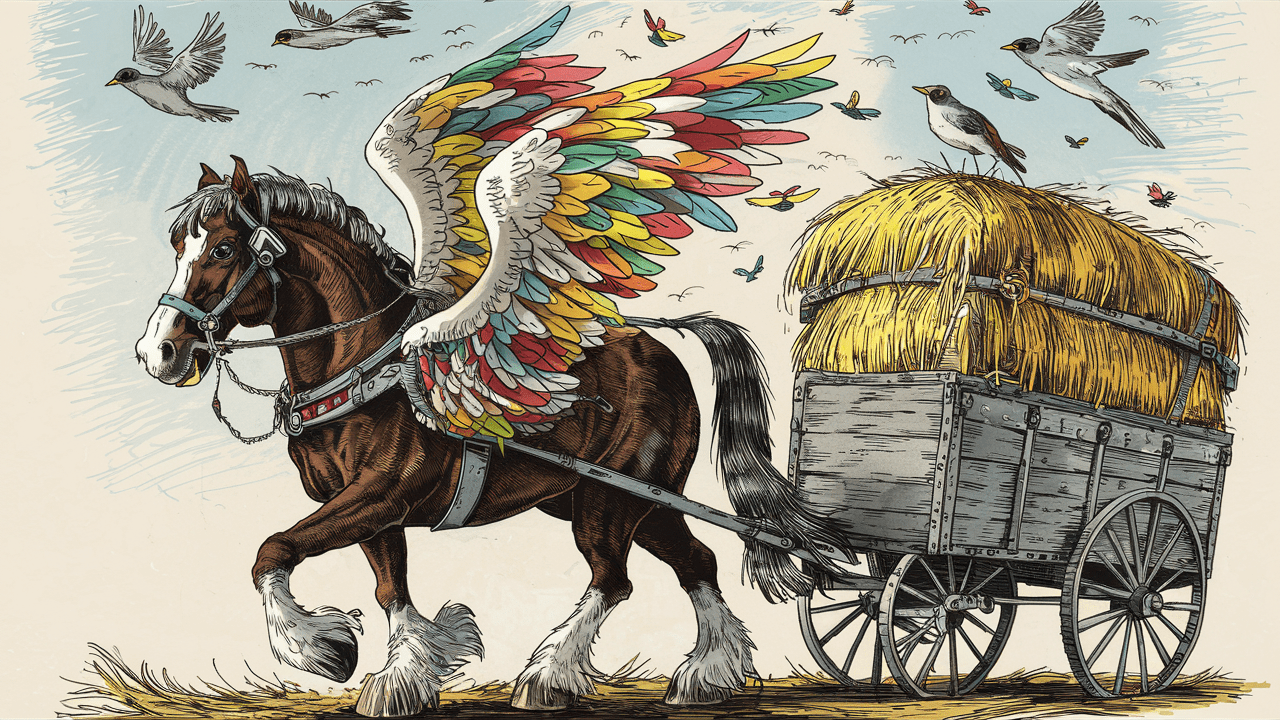The Clydesdale, a name synonymous with towering strength and flowing blonde feathers, has long been a symbol of farm power. But are these gentle giants all brawn and no brain? Absolutely not! These majestic creatures offer a unique blend of muscle, temperament, and trainability, making them ideal partners for various farm tasks. However, before you head off to the nearest breeder with dreams of a Clydesdale in tow, let’s delve into the advantages and art of training these magnificent beasts.
Built for the Grind:
Farm work ain’t for the faint of heart. It requires horses with serious pulling power and the stamina to work long hours. Clydesdales were practically designed for this! Their bodies are thick and powerful, with broad chests for pulling and strong legs for navigating uneven terrain. They can effortlessly haul massive loads, whether plowing fields, skidding logs, or pulling heavy equipment.
Gentle Giants at Heart:
Despite their impressive size, Clydesdales are known for their calm and even temperaments. They’re intelligent and surprisingly trainable, making them a joy to work with. Unlike some hot-headed breeds, Clydesdales are patient and even-keeled, perfect for working around skittish livestock or handling unexpected situations. This gentle nature has earned them the well-deserved nickname of “gentle giants.”
More Than Just Muscle:
Versatility is another feather in the Clydesdale cap. While pulling plows might be their specialty, they can be surprisingly adaptable. They can be used for logging, light riding, and even carriage driving. Their calm demeanor and impressive pulling power make them valuable assets for all sorts of farm tasks. Think of them as the ultimate four-legged Swiss Army knife for your farm!
A Rewarding Partnership:
Clydesdales aren’t just working animals – they can become cherished members of the farm family. Their intelligence and trainability make them a joy to work with, and their gentle nature fosters strong bonds with their handlers. Owning a Clydesdale isn’t just about getting the job done, it’s about building a rewarding partnership with a magnificent creature.
Taming the Gentle Giant: Training Tips
So, you’ve decided a Clydesdale might be the perfect addition to your farm family? Fantastic! But remember, with great strength comes great responsibility, and Clydesdales require thoughtful and patient training. Here are some tips to get you started:
- Start Early: Ideally, begin groundwork with your Clydesdale as early as possible, even as a foal. This helps them become comfortable with handling and builds a foundation of trust.
- Respect Their Size: Clydesdales are powerful creatures, but they’re also sensitive. Always use gentle handling and positive reinforcement. Force will only backfire!
- Focus on Communication: Clear and consistent communication is key. Use a calm voice, body language, and cues that your Clydesdale can understand. Remember, they’re intelligent creatures, not machines!
- Keep it Positive: Reward desired behaviors with praise, treats, or even a scratch behind the ears. Positive reinforcement goes a long way in shaping good habits.
- Take it Slow: Clydesdales are eager to please, but they also learn best at their own pace. Don’t rush the training process, and be patient with any setbacks.
- Seek Professional Help: If you’re a new horse owner, or unsure about training a Clydesdale, consider enlisting the help of a qualified equestrian professional. They can guide you through the process and ensure a safe and successful training experience.
The Clydesdale Conclusion:
Clydesdales are undeniably impressive creatures, offering a unique blend of strength, temperament, and versatility. For farms looking for a powerful and dependable partner, these gentle giants can be a fantastic choice. However, their size and strength require responsible ownership and thoughtful training. With patience, respect, and a positive approach, Clydesdales can become invaluable assets and cherished members of your farm family for years to come.



